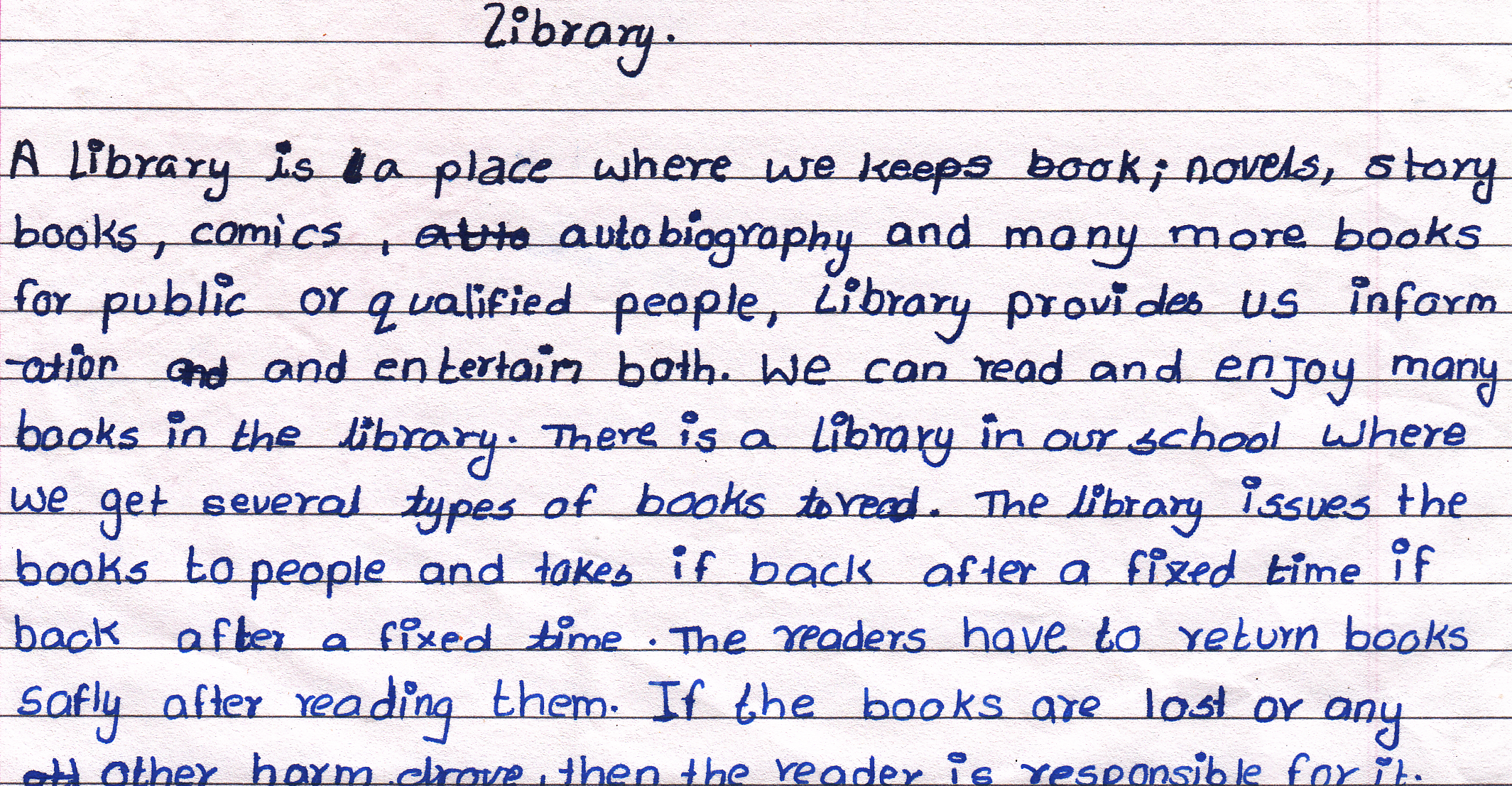
Abstract
The article entitled ‘English Teachers’ Experiences on Learner-Centered Teaching Pedagogy’ attempts to explore the narratives of English language teachers on learner-centred teaching pedagogy. The information for this study was gathered through interviews with three English teachers teaching at the secondary level in a public school. The findings revealed that English language teachers have shifted their teaching pedagogy from the grammar-translation method to task-based language teaching pedagogy and teachers have effectively focused on the child-centered method with the use of Information Communication Technology (ICT) tools.
Keywords: Grammar translation, ICT, learning, narrative, pedagogy
Introduction
I remember the days when I was a student at the secondary level. My English teacher used to teach us to translate the text from English to Nepali and used to make us memorize the text as they were. I, along with my colleagues, used to have a hard time memorizing the text and, in some contexts, we had a hard time understating the texts even though they were translated into Nepali and mother tongue. Despite the hardships in learning and understanding the text, with the same practice, I overcame the iron gate, School Leaving Certificate (SLC) with good marks. I was expecting a shift in the teaching methodology in higher education. However, my expectations were ruined as the tradition of translation was reiterated there as well. It seemed that English was never understood without translation. English was never taught in English and the same traditional method was introduced, practised, and internalized. Later as a teacher, I applied the same method for a long. I made the students memorize the text, translate it into the mother language, and so on. Due to that reason, I still feel reluctant and anxious while speaking with others in the English language. In the very beginning of teaching language, the grammar-translation method was applied rigorously but was criticized due to its limitations (Richards & Rodgers, 2010).
But, from the very day of the beginning of my classes at M.Phil., I realized the differences in the teaching-learning environment. I found out how learning is to be transferred and how teaching is to be placed. I witnessed a drastically different role from the Professors. Every time readiness of the Professor, the use of ICT in the classroom, the use of different teaching and learning materials, and the appropriate teaching approach and methods such as Communicative Language Teaching, Cooperative Language Learning, and Task-Based Language Teaching approach fascinated me to engage more in the classroom practices and transfer the skills to my classes. Henceforth, in this scenario, I feel that this is a pertinent issue to explore how do English teachers narrate their teaching approach now and then? I decided to carry out a mini-research by incorporating the narration of teachers on how language teaching pedagogy has changed from the past to the present.
In the context of the changing pedagogy, the roles of the teachers also change. English language teachers need to play various roles to dig out students’ hidden knowledge and the overall development of the students. They are supposed to play the role of facilitator, mentor, role model, information provider, resource developer, planner, assessor, etc. (Sapkota, 2017). The teachers’ roles depend on teaching pedagogy, which plays a crucial role to impact on the learning outcomes of students.
Methodology
Teachers’ stories themselves can be better resources for language teaching pedagogy. Verifying this, Richards (2002) advocates that teachers’ pedagogical knowledge can be enhanced through teachers’ stories themselves. Similarly, Anam et al. (2020) claimed that teachers are different in their actions, reactions, strategies, and decisions because they have different values, beliefs, cultures, and experiences. Therefore, they are stores of knowledge and skill. With this fact, I carried out this research and tried to dig out their stories.
This research is a small-scale study of the English teacher’s experiences with learner-centred teaching pedagogy. This is qualitative research, comprising the narrative inquiry method. Qualitative research is to get a subjective response from participants; hence, semi-structured open-ended questions were employed for the interview. Purposively, I selected three English teachers of secondary level from a public school in Pokhara, who have more than 10 years of teaching experience. Then, I took consent from each participant before conducting the research. Finally, I explored the stories of the teachers and developed themes based on their narratives.
Data Analysis
I took interviews and recorded the participants’ voices on the device. The teachers namely, Mr. Light, Mrs. Ray, and Mr. Shree (pseudo names) participated in the interview. Finally, based on the information collected from the teachers, I drew themes and findings of the study.
Findings
This section presents the discussion and results of the study under three broad themes.
Teaching Learning Pedagogy
The participants had a great memory of the grammar-translation method in their student’s life. The grammar translation method is based on learning grammar rules and vocabulary. Grammar is taught with explanation in the native language and is only later applied in the production of sentences through translation from one language to another (Rahman, 2012). In response to the question, how did you learn English, and which method did your English teacher apply in your class? Mr Shree shared,
The teacher used to teach us English, translate text from English to Nepali, and write rules and structure of grammar on the blackboard, like; s+v+obj… um, and we students would rote the rule of tenses, articles, prepositions etc., and apply it for making a sentence.
As a learning experience, Mr. Shree learned English through the GT method and grammar was the major factor in learning English. However, the participants indicated the change that they have been experiencing regarding teaching-learning pedagogy.
The participants mentioned various innovative ideas including task-based language teaching Task-based language teaching is an approach to language teaching that provides opportunities for students to engage in the authentic use of the target language through tasks. As the principal component in Task-based Language Teaching (TBLT), the task provides the main context and focus for learning, and it encourages language use similar to the way language is used outside of the classroom (Kim & Douglas, 2014). Mr. Light curiously revealed his experience,
I am using student centre activities which are very important for students because they get involved and try to give their ideas. Most often the time, I like engaging them in project work, puzzles, and information collection on related topics. They enjoy a lot with their work. Umm, I still remember that one day, I gave them writing a biography of a renowned person in the world, in that case, they searched name list of popular singers, dancers, poets, and players and wrote about them interestingly. They made me surprised because I had never heard about renowned people from different backgrounds.
As an expression, Mr. Light keeps students at the centre of learning and plays the role of advisor, mentor, and facilitator of students’ tasks. The finding re-verifies the research finding by Bhandari (2020) and also highlights that today’s teacher role has tremendously undergone various changes.
Role of ICT in Language Teaching Pedagogy
The use of contemporary technology in teaching languages has been intensely growing over the past decades worldwide (Warner 2004 as in cited Khatiwada, 2018). It has brought significant change in the teaching and learning styles of teachers and students. Every sector of our life is influenced by ICT. In the same way, English language teaching is also affected by rapid growth in the use of ICT in Nepal. The use of ICT in the classroom has changed the roles of students and teachers. In this scenario, Mr. Light eagerly offered his experience and said,
My students easily can learn the vocabulary from online sources and the exact pronunciation of words. By using Google, they create poems, write essays on different topics, and make project works from different reading materials.
The story of Mr Light revealed that the use of ICT has been found to assist students in assessing digital information efficiently and effectively since it is used by students to discover learning topics. In the same line, Moubtassime (2021) claimed that the use of ICT help them avoid the problem of pronunciation and grammar issue.
Similarly, Mrs. Ray said, “I use YouTube for teaching listening and speaking skills by relating with topic based on the syllabus”.
It means there are various online platforms where students can practice and learn the language. Lee (2000) focuses on the importance of claiming it as a key factor in enhancing the learners’ motivation for language development and linguistic proficiency. In conclusion, it is believed that the internet facilitates teachers to find new ideas, new techniques, and ways of teaching that assist in their teaching profession. Internet is helping them for creating a child-centred classroom. Hence, the use of ICT in the language classroom seemed to be very beneficial to both students and teachers.
Language Proficiency
Learning is the process of acquiring and understanding new knowledge, behaviour, skills, and values but language learning is defined as developing the ability to communicate in a second and foreign language. My participants narrated their experience in response to the question- how do you compare your students’ learning achievement and your own? Mr Light explored his experience of the past, “In our school age, learning was content-based, so we were able to say exact answers according to the expectation of the teacher.” In the same line, Izadinia (2009) asserts that years ago teachers were considered unquestioned authorities who were responsible for delivering knowledge to students, and students, in turn, were doomed to listening (p.7). But, on the other hand, in recent periods, teachers have had different experiences than their own students’ life, so, Mrs Ray shared
Students nowadays are more fast and smart than teachers, sometimes in connection with the internet, they already get information and knowledge before getting formal classes.
From the above-mentioned explanation learning achievement is relatively different when compared to past and present. The curriculum is also designed differently based on communicative skills thus students of the past seemed good at content whereas students of the present have good proficiency in the English language and they have good knowledge of ICT as well. Moreover, they can also use this tool for searching relevant learning materials.
Discussion
The study has traced the major trends in English language pedagogy from the past to the present. The grammar translation method was the dominant teaching approach in the Nepalese context. Teachers utilized only textbooks as the best learning resource. They did not have access to ICT even though it could stimulate learning motivation through collaborative learning and also improve learning efficiency. The use of ICT in language teaching promotes students’ motivation and learning interest in the English language (Ghimire, 2019). Due to this reason and the demand of the situation, teachers have gradually changed their teaching pedagogy and have applied different teaching approaches for the betterment of students. The stories of participants revealed that they have applied a task-based language teaching approach which promotes students’ engagement in the classroom. It has created a comfortable language learning environment and students love to use the English language with their friends and teachers (Bhandari, 2020).
Moreover, ICT is playing a crucial role in English language teaching where the internet is the most available, flexible, practical way and a treasure of vast knowledge, teachers are utilizing it for the purpose of meaningful classrooms and developing good communication skills. Thus, in this changing pedagogy of teaching, teachers are providing a great number of learning activities as mentioned above, and opportunities for students to communicate in the target language. The internet facilitates teachers to find new ideas, new techniques, and ways of teaching that assist in their teaching profession. With this, they can create a child-centred classroom.
Conclusion
The study revealed that the grammar-translation method used in language teaching and learning has been shifted. It has been replaced by the task-based language teaching approach where teachers want their students to use the ICT tools and engage themselves while learning. Student-centered learning is more focused these days where they learn in their self-paced learning environment. Teachers have also been transformed from dictators to facilitators where learning is placed at the center rather than the subject matters.
References
Alfadley, A., Aladani, A., & Alnwaiem, A. (2020). The qualities of effective teachers in elementary government schools from the perspective of EFL elementary teachers. International Journal of English Language Teaching, ECRTD, UK. 1, 49-64.
Bhandari, L.P. (2020). A task-based language teaching approach: A current EFL approach. Australian International Academic Centre.
Ghimire, N. B. (2019). Five facets for effective English language teaching. Journal of NELTA Gandaki.
Izadinia, M. (2009). Critical pedagogy: An introduction. In P. Wachob (Ed.), Power in the classroom: critical pedagogy in the Middle East. Cambridge Scholars Publication, 7-16.
Khatiwada, K. P. (2018). Online engagement for developing writing in English: perception of teachers and learners. Kathmandu University.
Kim, M., & Douglas, S. R. (2014). Task-Based Language Teaching and English for Academic Purposes: An Investigation into Instructor Practice in Canadian Context. TESL, Canada.
Lee, K. W. (2000). Energizing the ESL/EFL Classroom through Internet activities.
Moubtssime, H. H. M. (2021). The use of ICT in learning English: A study of students in Moroccan University. SAR Journal, 4(1), 19-28
Rahman, M. (2012). Grammar translation method: An effective and feasible method in Bangladesh context. Department of English and Humanities. BRAC University, Dhaka, Bangladesh.
Richards, J.C. (2002). Teachers’ narrative inquiry as professional development. Cambridge University Press.
Richards, J. C. & Rodgers, T. S. (2010). Approaches and methods in language teaching. Cambridge: Cambridge University Press.
Sapkota, K. P. (2017). EFL teachers’ readiness in the secondary classroom: A narrative inquiry. Kathmandu University.
About the Author: Ms Tripti Chaudhary is pursuing an M.Phil. in English language education at Kathmandu University. She has been working as a Program Coordinator in an International Non-Government Organization in Finland Nepal. She has been working in different INGOs for a decade to contribute her knowledge and skills in the education field. The areas of my interest include teacher professional development, parental education, and research in different areas.







 examination paper. Teachers often provide them notes on the contents and students copy them in their note books. When teachers ask them to be prepared for classroom writing, they remain absent in the class. When they are asked to write, they copy from bazaar notes, they do not make attempt of their own. They fear of being commented upon their writing. Teachers also do not encourage students to write. Teachers are mostly found writing in social media about the contemporary issues but academic writing is most neglected area in this region.
examination paper. Teachers often provide them notes on the contents and students copy them in their note books. When teachers ask them to be prepared for classroom writing, they remain absent in the class. When they are asked to write, they copy from bazaar notes, they do not make attempt of their own. They fear of being commented upon their writing. Teachers also do not encourage students to write. Teachers are mostly found writing in social media about the contemporary issues but academic writing is most neglected area in this region.